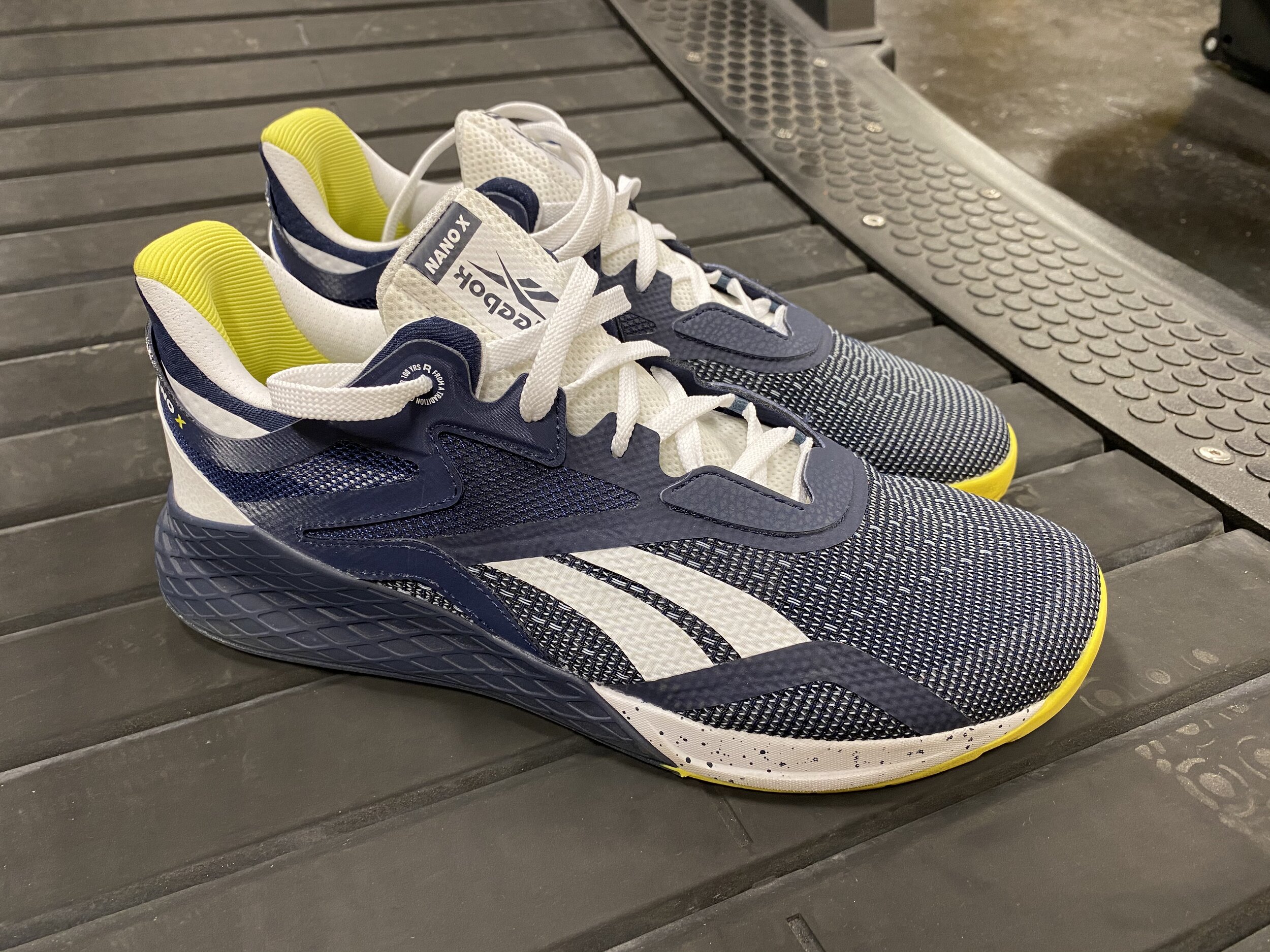The days of wearing the same basic running trainers for every workout are over. As more advanced training methods have become popular, sports manufacturers have adapted and started to make shoes more suitable for the kinds of workouts people are doing nowadays.
When it comes to heavy squats, deadlifts, weightlifting movements and the like, flexible shoes with little rigidity and support just aren’t really suitable. They don’t provide the foot support because they’re too flexible, plus the mid-sole (the cushioned bit) is too soft, so you lose power on the heavy lifts because it compresses. Great for running, not great for heavy lifting.
What should you look for in a pair of workout shoes?
That depends on what kind of training you’re going to be doing, how your mobility is and what your personal preferences are. Each workout has a different requirement, so here’s a few points you should be considering…
Shoes for weightlifting
Weightlifting shoes have a very particular design, quite unique compared to other shoes. They have a perfectly flat sole to maximise ground contact. They have a hard midsole which doesn’t compress under weight, allowing you to lift more.
Weightlifting shoes have a raised heel. This varies from shoe to shoe, ranging from around 10mm to 22mm. This allows you to keep your torso upright during the olympic lifts and it also improves your squat depth and form.
The upper is stiff - usually made from leather or a authentic leather. If it’s made from a breathable fabric, it’ll usually have a thick strap across the foot to keep everything secure and tight.
Shoes for cross training
What do I mean by cross training? I don’t mean CrossFit as such, but something that includes elements of both weightlifting and cardio exercise.
Cross training shoes such as the Reebok Nano’s or the Nike Metcons have grown in popularity over the last decade or so. They combine features of both trainers and weightlifting shoes, making the perfect all-rounder.
Typically these shoes have a flat sole for maximum ground contact, but it’s a more flexible sole than that of a weightlifting shoe. It allows you to run and jump easier. There’s a slightly raised heel, but usually around the 5-10mm range. High enough to help with weightlifting, but low enough to not be a problem for general movement.
The upper is more breathable and flexible and doesn’t contain a lifting strap. They look like a firmer, more supportive trainer and they behave like one. If your workout consists of weight training and cardio, these are the types of shoes to go for.
Shoes for running and classes
If you’re a runner or you’re taking part in classes such as Pilates, Aerobics etc, then normal running style trainers are perfectly suitable.
A running shoe is padded and breathable, so comfort is front and centre of the design thinking. They have a soft mid-sole, which is designed to absorb impact and provide cushioning when running. This is perfect for running, not great for lifting heavy weights.
The soft upper is breathable and flexible, making movement easy. They’re not particularly supportive, but you don’t need a huge amount of support for running and classes. Running trainers have the benefit of being very light too, so they make high impact work such as HIIT classes easier.
The right shoes change the game…
If you have struggled to find the perfect footwear for your workout, hopefully this quick guide will steer you in the right direction. Footwear choice is ultimately personal, but my suggestion is that you look at your training shoes from an equipment point of view, not a fashion one.
Decide the kind of training you’re doing and make footwear choices accordingly. Buy shoes for the task, like you would in another other walk of life. You don’t use a hammer for a job that needs a screw driver would you?
The right footwear improves your workout performance, your fitness and reduces your chances of injury.
If you’re in East London and would the AdMac Fitness personal trainers to train you, contact us on 07921465108 or email us at admacfitness@gmail.com. We look forward to hearing from you.




